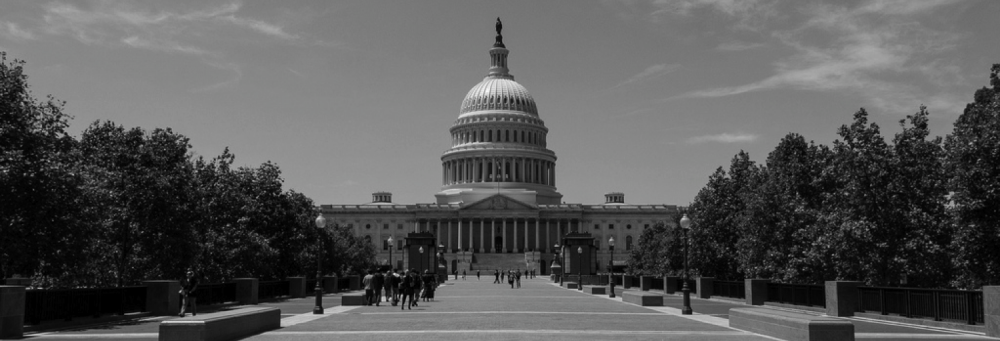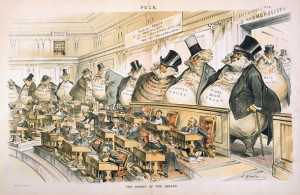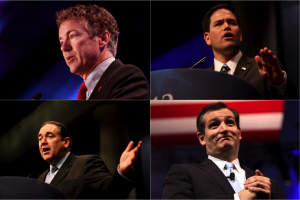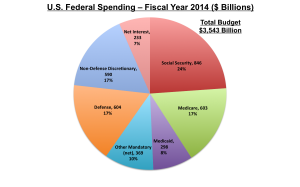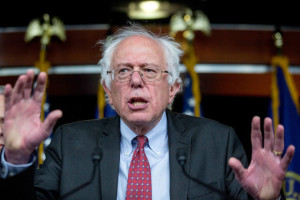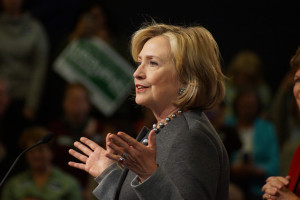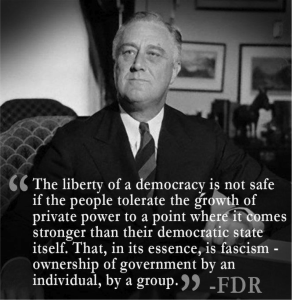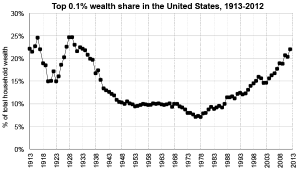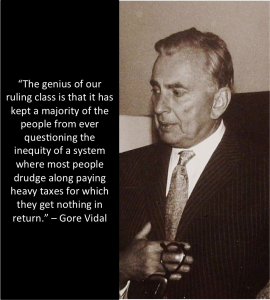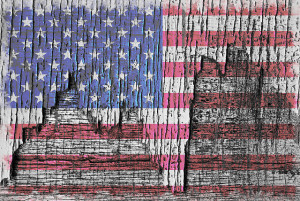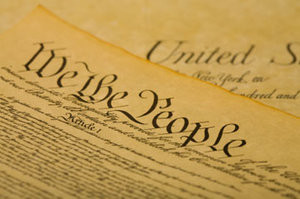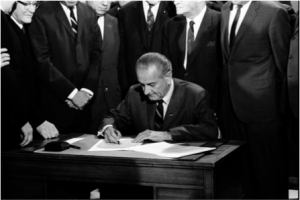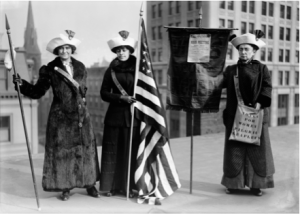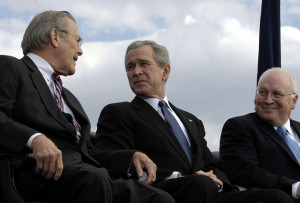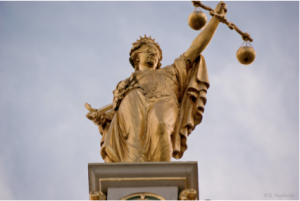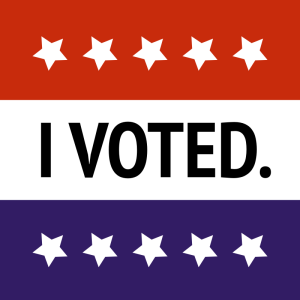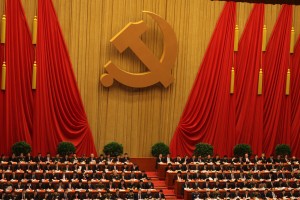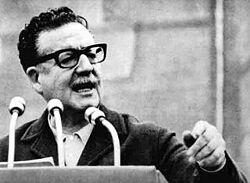The Russian annexation of Crimea and the subsequent outbreak of the Ukrainian civil war with its thousands of casualties are a European tragedy. It is the deadliest crisis in Europe since the end of the Kosovo War and with increasing NATO intervention the conflict is at risk of escalating even further. The West urges for peace while European and American elected officials as well as the media decry Vladimir Putin as the sole culprit of the deplorable situation. But the reality is more complex and albeit less visible, the United States have played a major role in the current developments leading to war on the European continent.
Vladimir Putin is an easy man to dislike. His authoritarian rule of Russia is strongly at odds with democratic ideals of the West. The Russian suppression of the free press and political opposition, the mysterious poisoning deaths of opponents and Putin’s strongman posturing are giving just reasons for critics to ridicule and criticize. The Russian president has a strongly unfavorable image in the West and the actions taken in Crimea seem to fit this perception perfectly. The annexation of the Ukrainian peninsula is a factual breach of international law. It seems like a clear-cut case which allows for guilt to be easily assigned. But a look at the history of post-soviet Ukraine tells a story not quite as simple.
Over the course of 25 years Russia developed a strong sense of betrayal and resentment towards the West and specifically the United States, and for good reasons. The basis for and foremost evidence of the Western lack of credibility was laid at the end of the Cold War. Russia was in dire straits economically and politically in the early 90s as the Soviet Empire was about to come to an end. But the Russian-Western relationship was at its climax. Diplomatic cooperation between Russia and the West was close and negotiations produced results. Mikhail Gorbachev had led the way to end the Cold War and during the 1990s 2+4 Talks he negotiated Germany’s reunification. Russia agreed to a united Germany on the condition that NATO would not further expand eastwards. The West accepted in the form of a gentlemen’s agreement but not in writing. 9 years later the Czech Republic, Poland and Hungary joined the alliance. 2004, in a second wave of extension, six former Warsaw Pact countries and Slovenia joined NATO. Albania and Croatia in 2009. The West broke its word and NATO – an alliance that was founded in opposition to Russian power and has ever since been considered a threat by Russia – was now at its borders.
In an 2009 interview with the German SPIEGEL then Russian President Dmitry Medvedev expressed the feeling of betrayal also concerning the Western promise in the 90s talks to take Russian interests into consideration. This promise was obviously violated by the NATO’s expansion but NATO and the US respectively added insult to injury various times. Notable instances were the 1999 Kosovo War, the US retreat from the ABM Treaty in 2002 and the US intervention in Ukraine.
In 1999 NATO’s aerial bombardment during the Kosovo war commenced although NATO by its own charter is a defense alliance and the action was not sanctioned by the UN Security Council because Russia and China would have vetoed it. Under US leadership the alliance proceeded to attack nonetheless. It proved to the Russians that the West and particularly the United States would break their own rules and would use unilateral force regardless of objections of their supposed partners to get their way.
Only three years later, in 2002, the United States unilaterally withdrew from the ABM Treaty, ending an agreement that was the cornerstone of bilateral arms control between the US and Russia for 30 years, to pursue its development of a National Missile Defense system. A decision that came only months after Russia had offered wide-ranging support for the United States fight against terror after the 911 attacks. From a Russian perspective this move could only be interpreted as an American drive towards a first strike capability and hence, a hostile act.
 Most important for the current situation, however, is the ongoing meddling of the United States in the affairs of Ukraine, a direct neighbor and a country considered a smaller version of Russia itself with a large minority Russian population (ca. 17%). The United States has provided $5 billion in financial aid to Ukraine from 1991 to 2014 under the USAID program. Ukraine is one of many recipients of USAID funds among the former Soviet states. However, Ukraine is the only one experiencing two uprisings in 10 years. In both cases a Russian-friendly leader, Viktor Yanukovych, was overthrown and replaced by a Western-friendly counterpart, Viktor Yushchenko and Arseniy Yatsenyuk respectively. In both cases there is more than incidental evidence that the United States at the very least facilitated the protests.
Most important for the current situation, however, is the ongoing meddling of the United States in the affairs of Ukraine, a direct neighbor and a country considered a smaller version of Russia itself with a large minority Russian population (ca. 17%). The United States has provided $5 billion in financial aid to Ukraine from 1991 to 2014 under the USAID program. Ukraine is one of many recipients of USAID funds among the former Soviet states. However, Ukraine is the only one experiencing two uprisings in 10 years. In both cases a Russian-friendly leader, Viktor Yanukovych, was overthrown and replaced by a Western-friendly counterpart, Viktor Yushchenko and Arseniy Yatsenyuk respectively. In both cases there is more than incidental evidence that the United States at the very least facilitated the protests.
After Viktor Yanukovych’s declared victory in 2004, the United States co-sponsored exit polls that rejected the run-off election’s official outcome and sparked the uprising of the Orange Revolution, it funneled money to NGOs that supported the Pora Movement – the revolution’s main agitators -, through the National Democratic Institute – a non-profit founded by former US Secretary of State Madeleine Albright – it trained election observers and was one of the first to decry the fraudulent nature of Viktor Yanukovych’s victory on November 23rd – only two days after the election. Among the candidates, Viktor Yushchenko was the US’ clear favorite. He had personally met with Dick Cheney in 2003, he received financial support by the National Endowment for Democracy – a Washington non-profit founded by Ronald Reagan -, his campaign website was created by a Washington PR firm and when he was poisoned with Dioxin during the campaign he was flown into Vienna to have American doctors attend to him. The Orange Revolution would bring Yushchenko to power. But he would be thrown out of office in 2010 with only 5.45% of the vote after prolonged infighting of his administration and widespread accusations of corruption. His former opponent Yanukovych became president in an election the OSCE called “transparent and honest”.
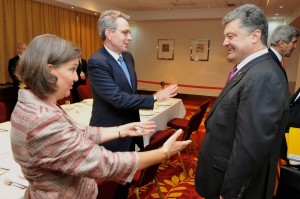
US Assistant Secretary of State, Victoria Nuland, US Ambassador ,Geoffrey Pyatt, and newly elected Ukraine President, Petro Poroshenko
In 2014, thanks to the taped and released conversation between US Assistant Secretary of State Victoria Nuland and US Ambassador to the Ukraine Pyatt, there might be doubt as to the extent of US sponsorship of the Maidan protests but certainly not about US interference itself. The 2014 uprising ousted democratically elected Yanukovych and installed Arseniy Yatsenyuk. Yatsenyuk, like Yushchenko, has strong US ties. His foundation Open Ukraine is supported a.o. by NATO and the United States State Department and he was explicitly named by Nuland as favorite US choice to lead the Ukraine after Yanukovych’s ouster. The then held election confirmed Petro Poroshenko, a multibillionaire businessman and one of Viktor Yushchenko’s close confidants, as new President of Ukraine. In effect, force was used a second time within a decade to diminish Russian ties, push the Ukraine towards the West and likely set it up as NATO’s next addition.
The annexation of Crimea came as a direct Russian response to what they must perceive as ongoing US interference in matters of Russian national security and an attempt to isolate and surround Russia. The actions chosen by the Putin administration are inexcusable, they are a breach of international law, but they are understandable. US actions, however, can hardly be linked to concerns of national security. And looking at the catastrophic results of the Ukraine conflict one has to ask why the United States does see it fit to destabilize a country that is over 5.000 miles from its borders and bring about an escalation that might destabilize an entire region.
The EU sees the United States as ally. But it should be of great concern to European leaders that the US has a history of destabilizing sovereign countries and replacing a nation’s leadership for the sake of economic gains; Iraq just being the latest example. It should furthermore concern European leaders that the US military industrial complex is a major influence in the American government, shapes its foreign policy decisions and would reap major benefits from NATO – and therefore the US – going to war.
The Ukraine conflict is not caused by unilateral action. The US and NATO have long treated Russia with condescension and by ignoring Russian concerns regarding the Balkan wars or the NATO expansion showed that they consider Russia little more than the loser of the Cold War or as Barack Obama put it “a regional power”, not an equal partner. The repeated interference in matters of great economic and security concern for Russia lay the basis for the crisis at hand. Invading a sovereign country is inexcusable. But looking at the 25 year development leading up to the Ukraine conflict one must conclude that the same is true for US actions. But while Russian behavior, albeit an overreach, concerns a direct neighbor and is therefore understandable, nothing similar can be said for the US.
